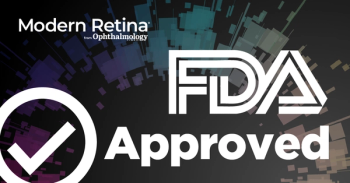
4DMT and Otsuka Pharmaceutical partner on 4D-150 in the greater Asia-Pacific region
Under the terms of the agreement, 4DMT will grant Otsuka exclusive rights to develop and commercialize 4D-150 for retinal vascular diseases in Japan, China, Australia, and other Asia-Pacific markets.
4D Molecular Therapeutics (4DMT) announced a strategic partnership with Otsuka Pharmaceutical to develop and commercialize 4D-150 for the treatment of
According to the company,1 under the terms of the agreement, 4DMT will grant Otsuka exclusive rights to develop and commercialize 4D-150 for retinal vascular diseases in Japan, China, Australia, and other Asia-Pacific markets. Additionally, Otsuka will lead all regulatory and commercialization activities in its licensed territories.
4DMT will receive an upfront cash payment of $85 million as well as expected cost sharing of at least $50 million over the next 3 years for global development activities and is eligible for up to $336 million in potential regulatory and commercial milestone payments. 4DMT will retain full development and commercialization rights for 4D-150 outside the APAC region, including the US, Latin America, and Europe.1
4D-150 is an investigational agent designed to provide multiyear sustained delivery of anti-VEGF (aflibercept and anti-VEGF-C) from the retina with a single, safe, intravitreal injection. It utilizes the company’s customized and evolved intravitreal vector, R100.
Recently, the company announced positive results from the SPECTRA clinical trial evaluating 4D-150 in patients with DME.2
The study enrolled 22 patients across 3 dose levels, including the phase 3 dose of 3E10 vg/eye (n=9) and supplemental doses of 1E10 vg/eye (n=12) and 5E9 vg/eye (n=1). It was noted that 2 patients dosed in the 1E10 vg/eye missed over 50% of study visits and were considered not evaluable for injection burden or other efficacy parameters.2
According to the data,2 4D-150 is well tolerated with no intraocular inflammation at any timepoint over 60 weeks. Additionally, no patients required any modification to the topical corticosteroid regimen.
David Kirn, MD, cofounder and CEO of 4DMT, and Makoto Inoue, president and representative director of Otsuka Pharmaceutical, commented on the partnership in a press release.
“We are thrilled to announce this strategic partnership with Otsuka, a leading global pharmaceutical company with a strong presence in the APAC region, reflecting our shared long-term commitment to improving outcomes for patients with retinal vascular diseases,” said Kirn. “This partnership is a key pillar of our global strategy, with 4DMT continuing to lead phase 3 clinical trial and manufacturing activities globally, in addition to precommercial and commercial activities outside the APAC region.”
“Otsuka has created new value that contributes to the well-being of patients in Japan and around the world through both in-house and collaborative research. By introducing 4D-150 to the markets in Japan and elsewhere in Asia and Oceania, we aim to help prevent vision loss through a single, potentially lifelong administration,” added Inoue.
References
4DMT announces exclusive license agreement with Otsuka Pharmaceutical Co., Ltd. for development and commercialization of 4D-150 in Asia-Pacific. News release. 4DMT. October 30, 2025. Accessed November 3, 2025.
https://ir.4dmoleculartherapeutics.com/news-releases/news-release-details/4dmt-announces-exclusive-license-agreement-otsuka-pharmaceutical Harp MD. 4DMT announces positive results from SPECTRA trial evaluating 4D-150 in patients with DME. Ophthalmology Times. August 4, 2025. Accessed November 3, 2025.
https://www.ophthalmologytimes.com/view/4dmt-announces-positive-results-from-spectra-trial-evaluating-4d-150-in-patients-with-dme
Newsletter
Keep your retina practice on the forefront—subscribe for expert analysis and emerging trends in retinal disease management.




























